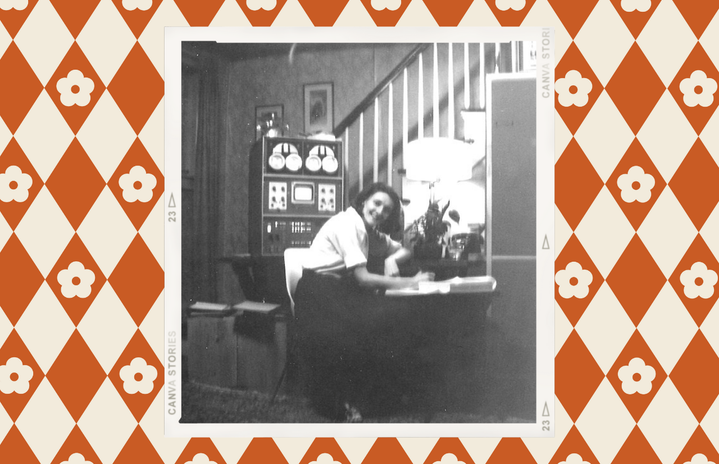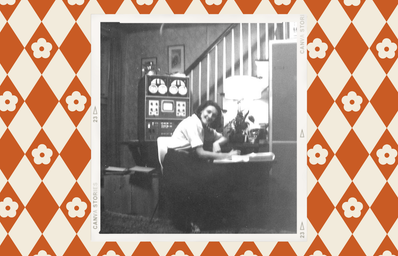Think back to your high school history class when you learned about women’s history — which female figures do you remember? You likely think of Susan B. Anthony and Rosa Parks… but who else? Although these women made significant contributions in history, there are so many other women leaders who made incredible changes within their communities and the world, but were forgotten women in history. According to research conducted by the Smithsonian Museum in 2017, only 178 women out of 737 specific historical figures are mentioned in America’s public education curriculum; and of these 178 women mentioned, 98 of them only appear once in students’ textbooks. While these standards vary from state to state, these statistics nonetheless shed light on the vast gender inequities and systemic sexism prevalent in our schools nationwide.
During Women’s History Month, it is especially important to remember and honor the influential yet overlooked women who came before us and the path they paved for us today.
- Mary allen wilkes (1937-)
-
You would not be able to read this article right now if it weren’t for Mary Allen Wilkes. She is most famous for her work as a computer programmer and logic designer on the LINC computer, the first personal computer ever made. Her groundbreaking coding paved the way for modern laptops and tablets and focused on allowing users to edit documents in real time.
After she left the world of computer science, Wilkes attended Harvard Law School and was a highly successful trial lawyer for 40 years. Now retired, Wilkes often gives talks to computer science students about women’s large roles in early computer programming.
- MADAM c.J. Walker (1867-1919)
-
A child and sibling of former slaves, Madam C.J. Walker (born Sarah Breedlove) was the first member of her family to be born outside of slavery. Walker holds the Guiness World Record for being the first female self-made millionaire in the United States. She made her fortune creating the Madam C.J. Walker Manufacturing Company which specialized in cosmetics and hair care products for Black women.
- Gloria richardson (1922-2021)
-
One of the unsung heroes of the civil rights movement, Gloria Richardson advocated for Black women and the ways that they were looked over by organizers and leaders in the movement. A founder of the Cambridge Nonviolent Action Committee in her home state of Maryland, Richardson spent her life grassroots organizing for economic and voting rights for Black people in Maryland and across the nation.
- Hedy Lamarr (1914-2000)
-
Few have had accomplishments as diverse as Hedy Lamarr. In Czechoslovakia, Lamarr became a movie star in the United States, praised for her acting skills and striking beauty. A champion for women’s empowerment, Lamarr portrayed one of the first female orgasms ever to appear on film. The Hollywood starlet also doubled as an inventor. Alongside composer George Antheil, her work with frequency hopping technology paved the way for modern GPS and WiFi technologies.
- Christine de Pizan (1364-1430)
-
The first professional woman writer, Christine de Pizan served at the court of King Charles VI of France and numerous French dukes. Her writings advocated for education for women and for better treatment of women in general. Widowed with three children at the age of 25, she is the only medieval writer known to have been involved in the production process of her own manuscripts. Her book of advice to knights, princes, and princesses was in use far into the 15th century.
- Patsy Takemoto Mink (1927-2002)
-
Born in Paia, Hawaii, Patsy Takemoto Mink was a successful lawyer, advocate, and politician who paved the way for Asian American women. Mink was not only the first Asian American woman to be in the House of Representatives, but she was also the first Japanese American to practice law in Hawaii. She also made history in 1972 when she became the first woman to run for the Democratic nomination for president. In Congress, Mink co-authored Title IX, a piece of legislation that provided women more opportunities in the classroom and in school sports. Additionally, she pushed for the passage of the Women’s Educational Equality Act in 1974 which allotted federal funding for materials to help girls succeed in the classroom.
- Marsha P. Johnson (1945-1992)
-
Credited as the person who threw the first brick at the Stonewall Riots in 1969, Marsha P. Johnson devoted most of her life to fighting for LGBTQIA+ rights and was a founding member of the Gay Liberation Front. Alongside Sylvia Rivera, Johnson created Street Transvestite Action Revolution, an organization that provided housing and necessities for drag queens, gay youth, and transgender women living on the streets in New York during the 1970s. Additionally, Johnson, who was HIV positive, was an AIDS activist and spent days comforting and caring for HIV and AIDS positive patients at the hospital.
- Gracia Mendes Nasi (1510-1569)
-
Gracia Mendes Nasi was one of the biggest supporters for Sephardic Jews during the Spanish Inquisition. She leveraged her wealth to build an escape route to save Conversos, who were Jewish people forced to convert to Catholicism during the Inquisition. She further supported her Jewish community by funding schools, hospitals and synagogues. A highly successful business woman, Mendes Nasi resisted monarch’s and members of the aristocracy’s offers to marry her daughter in order to maintain control of her wealth and influence.


